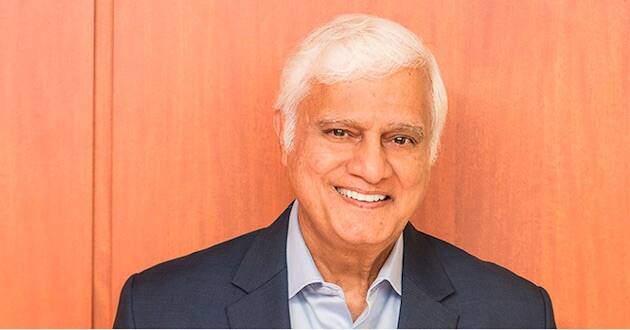How should we respond to the Ravi Zacharias scandal?

In the aftermath of the shocking and tragic news about the sex scandal involving Ravi Zacharias, someone wrote me asking, “Would you consider writing something in regards to the Ravi scandals? I know this is sending believers into a whirlwind of confusion.”
She continued, “I guess what people are saying is how could a man who sounds so spiritual, lead so many to Jesus, be so deeply involved in willful sinning? When things like this happen to someone with such influence. It sends people into a whirlwind of doubt.”
Many others are asking identical questions. How, then, should we respond?
1) Anyone can lead a double life. For many years, I have told ministry leaders and ministry school students that it is all too easy to learn to lead a double life. And, on a certain level, all of us learn how to compartmentalize.
Let’s say that you’re an elementary school teacher dealing with a difficult financial situation that has you on the verge of bankruptcy. This has your attention during every waking moment of your life, except when you’re teaching the children. Then, you put on your smiling face, teach your lessons, and act as if you didn’t have a care in the world.

Even parents learn to do it in the home, not wanting their children to see fear or anger or some other, negative emotion. We all learn to play-act on some level or another.
Sadly, it’s the exact same thing with ministers of the gospel. We learn to play-act too, even in ways that are noble at first.
The longer this goes on, the harder our hearts become. We become more hypocritical, more polished, more deviant. We not only compartmentalize our sin but we rationalize it. We might even justify it. “I’m a man of God who sacrifices much for the ministry. Surely, I’m allowed some perks along the way!”
In New Testament times, Jesus had severe rebukes for many of the Pharisees. But from what we understand from other, contemporary sources, these men were highly respected religious leaders. Yet to some of them Jesus said, “Woe to you, teachers of the law and Pharisees, you hypocrites! You clean the outside of the cup and dish, but inside they are full of greed and self-indulgence. Blind Pharisee! First clean the inside of the cup and dish, and then the outside also will be clean.
“Woe to you, teachers of the law and Pharisees, you hypocrites! You are like whitewashed tombs, which look beautiful on the outside but on the inside are full of the bones of the dead and everything unclean” (Matthew 23:25-27).
To repeat: this can happen to any of us. That’s why all of us should stop for a moment and ask ourselves, “Am I leading a double life?”
2) God’s gifts and calling are irrevocable. When Paul wrote these words in Romans 11:29, he was speaking specifically of the nation of Israel. But we can see elsewhere in Scripture that the same principle can apply to individuals.
Sometimes, while reading Judges 16, I have been shaken to the core. There we are told that Samson, whom God gifted with supernatural strength and who had been raised up to deliver Israel from her enemies, slept with a Philistine prostitute. This was an especially heinous act, not only because it was a sexual sin but because it was a sexual sin with Israel’s arch-enemy.
The text states that when the Philistines came to attack Samson in the middle of the night, “he arose and took hold of the doors of the gate of the city and the two posts, and pulled them up, bar and all, and put them on his shoulders and carried them to the top of the hill that is in front of Hebron” (Judges 16:3).
Can you imagine that? He just had sex with a Philistine prostitute. He is guilty and he is unclean. Yet he still has his supernatural strength. The gift still operates. How sobering, and how terrifying.
Just because someone is anointed doesn’t mean they are right with God. Just because someone is gifted by the Spirit doesn’t mean they are living holy lives.
That’s why we make a giant mistake when we become enamored with someone’s gift – be it preaching or be it healing, be it prophecy or be it eloquence. The gift is God’s gift. We are responsible for the character of our lives, with His grace and help, of course.
3) Let God be true and every man a liar. What if you came to faith through Ravi’s ministry? What if you were greatly helped by one of his messages? What if he was your go-to guy during times of spiritual and intellectual crisis?
Obviously, right now, it would be very difficult for you to read one of his books or watch one of his videos, and for good reason. But that doesn’t mean that the words he spoke were false. And I imagine that as he wrote and spoke, he was quite sincere at those moments, genuinely wanting to help people find the truth. (Again, this is part of the deception of leading a double life.)
4) Grace can be abused. How many thousands or even millions of times has God forgiven you and me since we came to faith? How many times has He removed any sense of guilt or condemnation? How many times has He reminded us of His great love for us, helping us to focus on His goodness rather than our badness?
It is because of that very grace that the Word gives us strong warnings against abusing grace, including these: “You, my brothers and sisters, were called to be free. But do not use your freedom to indulge the flesh; rather, serve one another humbly in love” (Galatians 5:13). And, “Live as free people, but do not use your freedom as a cover-up for evil; live as God’s slaves” (1 Peter 2:16).
God’s grace empowers us to holiness. Let us not use it as a cloak for immorality. Instead, as those who have been forgiven much, let us love much (see Luke 7:47). Let the Lord’s incredible mercy be an incentive to purity rather than an excuse for impurity.
5) The only reason we have this massive scandal is because of lack of accountability and double standards within the ministry. I do not write this to throw stones of accusation (more on that in a moment). I write this because RZIM leaders have confessed to this very thing, admitting that they allowed the father and founder of their ministry to operate with a different set of rules. Had simple accountability been practiced, had universal, common-sense standards been applied (such as, you don’t travel overseas with your personal, female masseuse), much of this, if not all of it, could have been avoided.
It is clear that there were warning signs along the way – some of them very loud and obvious, specifically with the complaint from the couple in Canada whom RZIM instead defamed – and had attention been given to these warnings, the situation could have been nipped in the bud.
The truth is that any of us can get beaten down and weakened in the course of our lives and ministries. That’s when we need to reach out for help, as well as welcome those who sense that something is wrong and ask us difficult questions.
Godly accountability – in our homes, in the church, in the workplace – is a lifesaver.
6) This is not the time to throw stones; it is time to search our own hearts. RZIM is already taking massive hits, and branches of the ministry worldwide are separating or being renamed. There’s no need for us to hurl our own self-righteous stones of accusation at this moment, despite the ministry’s past failures in confronting these issues. They are making full confession now, and they acted rightly by calling for a full-scale investigation.
I suggest we put our stones down and, instead, ask some serious questions. Is there hypocrisy in our own lives? Do we have secret, besetting sins? Are we leading a double life ourselves?
7) Let’s not silence the victims because we want to protect a ministry. It is true that there are many false accusers out there. It is true that there are embittered people who want to bring ministries and leaders down. They are troublemakers and they need to be exposed.
But there are also genuine victims, as in the many women against whom Ravi sinned. They must be listened to, no matter what the implications might be. To think that the Lord is more concerned with the success of a ministry than with the wounded person who has been crushed by that ministry is to not know Him at all.
8) To whom much is given, much is required. To the level of gifting or notoriety we have, to that extent are we accountable. All the more does this hold true for those doing public ministry, since we can bring tremendous honor or tremendous reproach to the name of the Lord.
This is a sobering principle for any of us with public ministries or large followings. May we walk worthy of the high calling, may we be quick to deal with sin in our lives, may we practice what we preach, and may we not bring reproach to the name of the Lord or hurt His precious flock.
9) Sin is never worth it. Ever. The payback is never worth the pleasure, no matter how good the feeling or how powerful the release or how gratifying the moment. Sin always leaves lasting regret. Always.
Focusing on one, key Hebrew word: acharit (pronounced ah-kha-reet; you can listen to the message here). It literally means that which comes after, the final end, and it is found repeatedly in Proverbs.
The message is simple and clear: In the acharit, sin doesn’t pay. It will haunt us in this life and drag us down once we’re gone – unless we repent and make things right.
That’s why Proverbs states, “Listen to counsel and receive instruction so that you may be wise in your acharit” – meaning, wise in your final end (Proverbs 19:20).
None of us are exempt from sin and temptation, and it is those who think they stand who must take heed lest they fall (1 Corinthians 10:12).
10) Everything flows out of our personal relationship with the Lord. My wife Nancy shared these relevant thoughts with me: Take heed lest you fall! Apart from Me, Jesus said, you can do NOTHING…you can’t even live a holy life. We must have a living relationship with the Son of God. It is easy to teach the Word without the Spirit (look at the Pharisees). For something like this to take place, we have lost connection with the Head.
Everything in our lives is a direct result of our relationship to the Lord. Is it real, or are we going through the motions? That is a dangerous place in which to remain. Yes there can be times of dryness, but we must push on and go forward. We must have safeguards especially because of the world we live in.
Don’t fool yourself. “A little bit of sin can spoil a whole life” (Smith Wigglesworth). We don’t really get away with anything. If we dabble with sin long enough, it will come back to bite us and even destroy us, as well as cause grief and harm to those around us.
If we are in true, vibrant, daily, vital fellowship with the Lord through His Word and prayer, we will not lead a double life.
11) Don’t become jaded, as if no leaders can be trusted. We make a mistake if we look to a person – any person – in the same way that we look to the Lord. But there are many God-fearing leaders, people of integrity, people who are not living double lives.
It is right and correct to expect our leaders to live holy lives…to live in purity and to be godly examples…ESPECIALLY in their private lives. It should not be the extra holy ones whole live an exemplary life. God expects no less from us. But we cannot do it by mere will. It is only our close relationship with the Lord whom we love that will keep us free from a life of sin.
If there is a ministry you support from a distance, feel free to ask them questions about standards and accountability. Those who are clean are glad to bring relevant information into the light.
12) A massive apology is owed to those who do not believe our gospel message. If you are reading this as a non-believer – as an atheist or agnostic or member of another faith or as a former Christian – then as a public ministry leader, I want to apologize to you from the heart.
What Ravi did was absolutely inexcusable, and it is no way reflective of our values and beliefs. To the contrary, the whole reason that there is such shock and dismay around the world is because this is so abhorrent to us.
If sexual immorality and hypocrisy were our way of life, there would be no shock at all. Instead, there would be a yawn. But there are no yawns in our midst over this terrible news. Instead, there are tears and sobs and cries of grief and shock.
This is the opposite of who we are in Jesus, the opposite of the standards that He set, the opposite of the way we seek to conduct our lives.
The bottom line is that these moral failings are ours and ours alone. They do not reflect in the least on the character of our God.
13) Let us live sober lives today in light of the great accounting tomorrow. Paul wrote that all of us, as believers, will give account to God one day (see Romans 14:12 and 2 Corinthians 5:10).
May all of us take stock today of our lives. And may we, with God’s help and grace, redouble our efforts to make Jesus known in all of His beauty and power.
–Dr. Michael Brown








